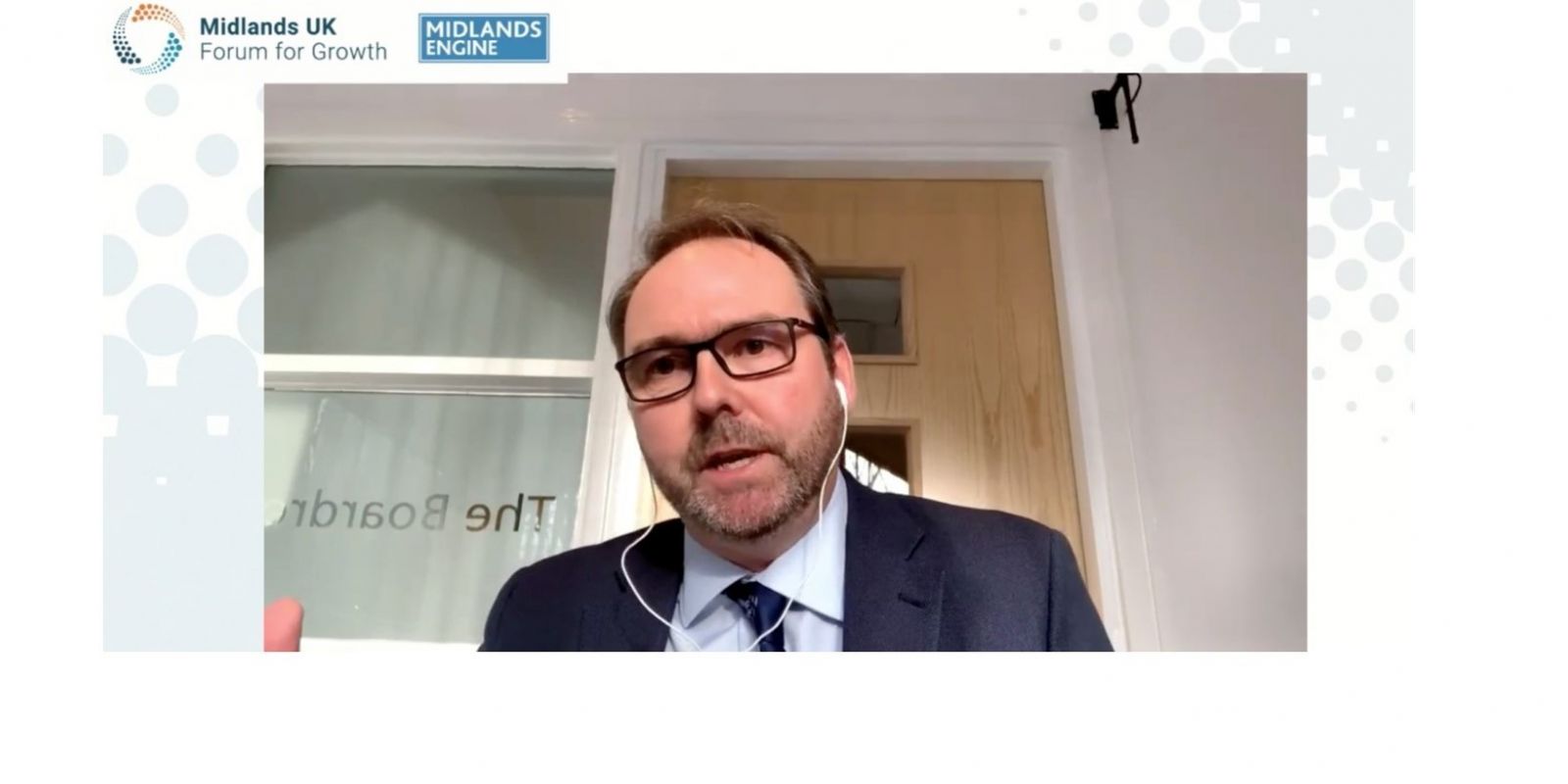Repurposing the High Street
Team Lincolnshire ambassador Tim Bradford joined a panel to discuss the repurposing of the high street at the Midlands UK Forum for Growth conference today.
Team Lincolnshire represented Greater Lincolnshire at the Midlands UK Forum for Growth conference #MidlandsUK2020 today.
Tim Bradford, Managing Director of Banks Long & Co and a long-standing Team Lincolnshire ambassador, joined a panel to discuss the repurposing of the high streets, along with Claire -Pooley (Avison Young, Chair), Paul Wright (NewRiver REIT), Rebecca Lewis (Morgan Sindall) and Chris Henning (Nottingham City Council).
High Streets are not the places they were, but this change was happening long before COVID-19 decimated the footfall. The pandemic has just helped to accelerate the need for change and a new purpose. Granted it has given us more of an appreciation of green open spaces, but our town centres were already declining, and regeneration was already responding to new needs and looking at ways of bringing people back onto the high streets. A great example of this is the development of the Cornhill Quarter in Lincoln city centre.
So how do we develop strategies to provide solutions to our these new needs? Why are town centres so important? These questions were put to the panel. They all agreed that high streets provide so many functions: economic, social, entertainment as well as a civic function. Threats to the high street remain similar across the UK: online shopping, supermarkets, out of town retail outlets, offices moving out of town. People may be working from home more, and shopping online, but they still want to socialise.
Tim suggested it's important to look at repurposing our high streets from a wider regional perspective. This has been a top priority for the Greater Lincolnshire LEP and Lincolnshire County Council. The geography of Greater Lincolnshire means we have a very large area to cover. From the north all the way down to Rutland, the diverse dynamic of each area means there is no 'one-stop' solution for a region of our diversity. Tim told the audience that public / private sector partnerships such as Team Lincolnshire are instrumental in the success of our town centres, and the key to strong thriving high streets is a strong growth agenda, all of which the Greater Lincolnshire LEP is supporting.
"A strong economy unites the region, and with the Town Deals in place as well, these are all positive to grow and reinvent our High Streets," Tim commented.
Lincolnshire is also seeing a rise in inward migration to the county; this was happening before Covid, but the pandemic has accelerated this.
So what did the panel think future will look like? It was acknowledged that there is lots of distress in our town centres at the moment. All the panellists agreed that the need for the public and private sector to work together and take ownership of the high streets is key, as is championing regeneration with a social conscience based on a shared risks and rewards model. Local authorities can play a big role. Public realm and wide open space is becoming increasingly more important, and this is where councils should be natural partners for developers.
It is also essential to generate 'all day spending' and create more reasons for people to come into the town centres. It seems that we can no longer rely on office workers to provide an abundance of footfall, so how do we fiill this gap? How do we shape places going forward when the demographic is so diverse? This is so pertinent to Lincolnshire. Tim alluded to the success of the Cornhill Quarter which has been driven by public and private sector stakeholders all with a collective vision.
However, Tim stressed that we also need to look at other factors such as developing skills and encouraging the younger generation to stay in the area. But for this they need jobs, housing, and vibrant town centres with alternative uses. We need to engage with the community and understand the social dynamics (for example, the coast has unique issues with seasonal workers and visitors which are very different to other parts of the region).
How do we fund these changes? All the panel agreed that we need capital that backs social as well as fiscal return.
The reasons people are drawn to a town centre can no longer be just about retail. They need to be a place where people can dwell: diversity of use and an integrated offer. Should we look at integrating One Public Estate back into our town centres? It is also essential that our communities have money to spend on the high street; deprived communities cannot sustain high streets.
It was a thought-provoking and very topical discussion, and one which we would like to continue! Please do get in touch with your thoughts on the subject
Useful Links
Sign up to Team Lincolnshire
As well as helping promote Lincolnshire, Team Lincolnshire members benefit from a great range of services and support.
Contact us

